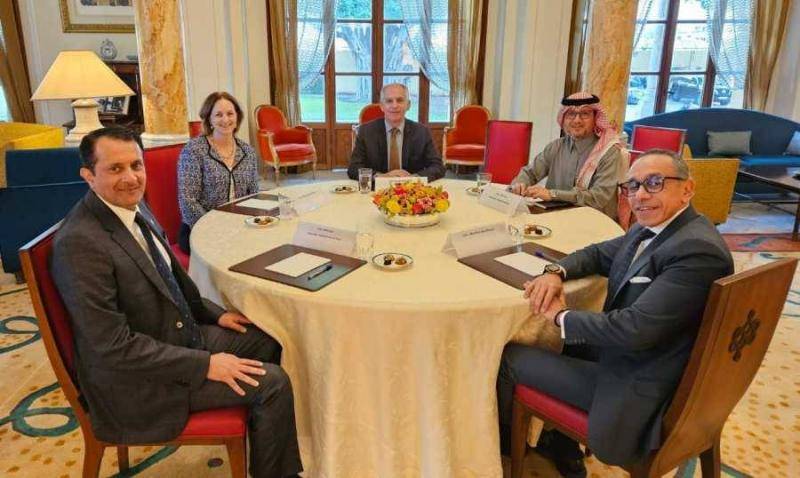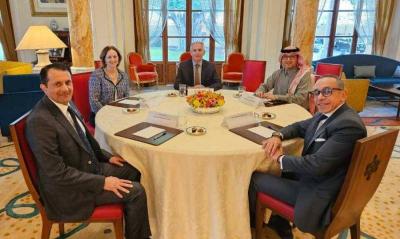The return of meetings began at the Pine Palace, where the French embassy hosted the second preparatory meeting for the Five-Nation envoys yesterday afternoon. Attendees included the French ambassador Hervé Magro, ambassador Bukhar, U.S. ambassador Lisa Johnson, and Egyptian ambassador Alaa Moussa, along with Qatari ambassador Saud bin Abdul Rahman bin Faisal. Political sources familiar with the situation advise not to expect any immediate results from the envoys’ meeting, as reported by "An-Nahar," due to their lack of decisive authority. Their mission is focused on preparing the agenda for the upcoming meeting of the representatives of the Five-Nation Committee.
Furthermore, it is noted that the initiative spans between Washington and Paris, with anticipated visits from French presidential envoy Jean-Yves Le Drian to Beirut, and U.S. envoy Amos Hochstein to Tel Aviv. Currently, there are no updates on Hochstein’s visit to Beirut, which hinges on reaching an agreement regarding the situation in the south, starting with the implementation of UN Resolution 1701. Meanwhile, Le Drian's visit also depends on assessing the political forces in Lebanon and whether conditions are mature enough to facilitate a presidential settlement.
In this context, sources highlight two significant points: the first, Hariri’s focus on the priority of electing a president and his dissatisfaction with the political forces that continue to obstruct this process. The second point involves renewed discussions about the dialogue table previously proposed by Speaker Nabih Berri, which was later adopted by the National Moderation Bloc and was visited by various parliamentary blocs without yielding any results.
According to sources cited by "An-Nahar," the greater the escalation, the closer Lebanon comes to a settlement, which may occur unexpectedly as all available diplomatic means to prevent escalation have been exhausted. It is emphasized that external diplomatic efforts have progressed in ensuring Lebanon's commitment to implementing Resolution 1701 by providing financial and logistical support to the army, effectively removing the pretext for opponents claiming that the army is unprepared to maintain security in the south. The upcoming international conference scheduled in Paris on the 27th of this month will serve as an indicator of the international community’s seriousness in addressing this issue.
Simultaneously, the envoys continue their preparatory meetings in Beirut, which will later transition into either bilateral or collective discussions with political forces, complementing the first meeting held in Ain al-Tineh. The agenda will feature a single item: returning to the specifications for the president and striving to achieve consensus on the choice that encompasses the most common grounds appealing to both parties in the conflict. It is important to note that the presidency will not be isolated from a comprehensive deal that primarily includes the Prime Minister and the government. Hariri’s week in Beirut is not far from laying the groundwork needed for this deal.




